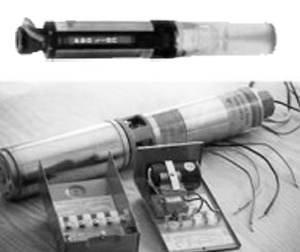After reading many of the well threads there are still many questions.
Cliff notes: well drilled 1971, 100 feet deep, 4" steel casing. New pump in 1991 with 1" galvanized drop pipe. The pump will not produce more than 30 psi anymore, flow is still good. System holds pressure when pump shuts off. Well guy tried to pull the pump, said it was stuck and that he could try until it comes loose or breaks and if it breaks no water for a month or more since they are backlogged for drilling new wells. Decided to leave it for now. Lots of sediment in the water filters for a while after the attempt to pull the pump.
I'm resigned to getting a new well drilled, but am a bit unsure about what to ask for. The current offering here in Michigan seems to be 5" sch 40 pvc casing and 1" sch 80 pvc for the drop pipe and a 2 wire pump.
Our previous home had a 300 foot deep well with a 6" steel casing, 3 wire pump and an aircraft type cable going to the pump for pulling it out.
I'm a little concerned about the pvc drop pipe being used to pull the pump out. I also like the 3 wire pump for a few reasons.
Soo what would the TBN experts recommend?
Cliff notes: well drilled 1971, 100 feet deep, 4" steel casing. New pump in 1991 with 1" galvanized drop pipe. The pump will not produce more than 30 psi anymore, flow is still good. System holds pressure when pump shuts off. Well guy tried to pull the pump, said it was stuck and that he could try until it comes loose or breaks and if it breaks no water for a month or more since they are backlogged for drilling new wells. Decided to leave it for now. Lots of sediment in the water filters for a while after the attempt to pull the pump.
I'm resigned to getting a new well drilled, but am a bit unsure about what to ask for. The current offering here in Michigan seems to be 5" sch 40 pvc casing and 1" sch 80 pvc for the drop pipe and a 2 wire pump.
Our previous home had a 300 foot deep well with a 6" steel casing, 3 wire pump and an aircraft type cable going to the pump for pulling it out.
I'm a little concerned about the pvc drop pipe being used to pull the pump out. I also like the 3 wire pump for a few reasons.
Soo what would the TBN experts recommend?
